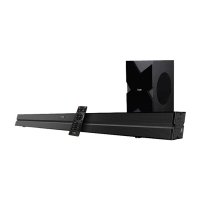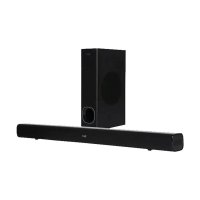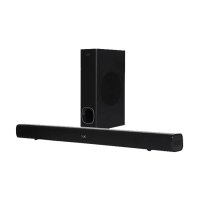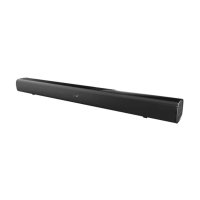Why Is My Speaker Crackling? How to Fix Audio Distortion
Experiencing crackling or distortion in your speakers can be frustrating, especially when you're trying to enjoy your favorite music or watch a movie. Speaker crackling can stem from various issues, ranging from minor connection problems to more serious hardware malfunctions. In this blog, we'll explore common causes of audio distortion and provide practical solutions to help you get your sound back to its best.
Common Causes of Speaker Crackling
Loose or Damaged Cables: One of the most common reasons for crackling sounds is loose or damaged cables. If the cables connecting your speaker to your audio source are not securely plugged in or are frayed, it can cause interference and distortion.
Interference from Other Devices: Electronic interference from other devices, such as Wi-Fi routers, cordless phones, or even nearby electronics, can affect your speaker's performance, leading to crackling noises.
Faulty Speaker Drivers: The drivers inside your speakers are responsible for producing sound. If a driver is damaged or malfunctioning, it can cause crackling or distortion.
Audio Source Issues: Sometimes, the problem lies with the audio source itself. If the source (e.g., a computer, phone, or TV) has a poor-quality audio file or a malfunctioning audio output, it can result in distorted sound from your speakers.
Software or Firmware Issues: Outdated or corrupted software and firmware can lead to audio problems. This includes audio drivers on your computer or firmware on your speaker.
Overloading the Speaker: Playing audio at excessively high volumes can strain the speaker's components, leading to distortion or crackling sounds.
How to Fix Audio Distortion
Check and Secure Cables: Ensure all cables are properly connected and free of damage. If you find any frayed or broken cables, replace them with new ones. For wired connections, try unplugging and reconnecting the cables to see if it resolves the issue.
Minimize Interference: Move your speaker away from other electronic devices that might be causing interference. For wireless speakers, ensure they are not operating on the same frequency as other wireless devices.
Inspect the Speaker Drivers: If you suspect the speaker drivers are faulty, you may need to have them repaired or replaced by a professional. If your speaker is under warranty, contact the manufacturer for support.
Test Different Audio Sources: Connect your speaker to a different audio source to determine if the problem persists. This will help you identify if the issue is with the speaker or the original audio source.
Update Software and Firmware: Ensure that your audio drivers, speaker firmware, and any related software are up to date. Check the manufacturer's website or support page for the latest updates.
Avoid Overloading: Play audio at moderate volumes to avoid straining the speaker. If you notice crackling at high volumes, lower the volume to see if the issue improves.
Reset Your Speaker: Sometimes, performing a factory reset can resolve various issues. Consult your speaker's manual for instructions on how to reset it to its default settings.
Preventing Future Issues
Regular Maintenance: Keep your speaker and cables in good condition. Regularly inspect and clean them to prevent buildup of dust and debris that could affect performance.
Avoid Physical Damage: Handle your speakers carefully to avoid physical damage. Drops and impacts can affect internal components.
Proper Placement: Place your speakers in a well-ventilated area to prevent overheating and ensure they are not obstructed.
By understanding the potential causes of speaker crackling and taking the appropriate steps to address them, you can enjoy clear and uninterrupted audio. If you've tried these solutions and still experience problems, it might be time to seek professional help or consider replacing the speaker.



